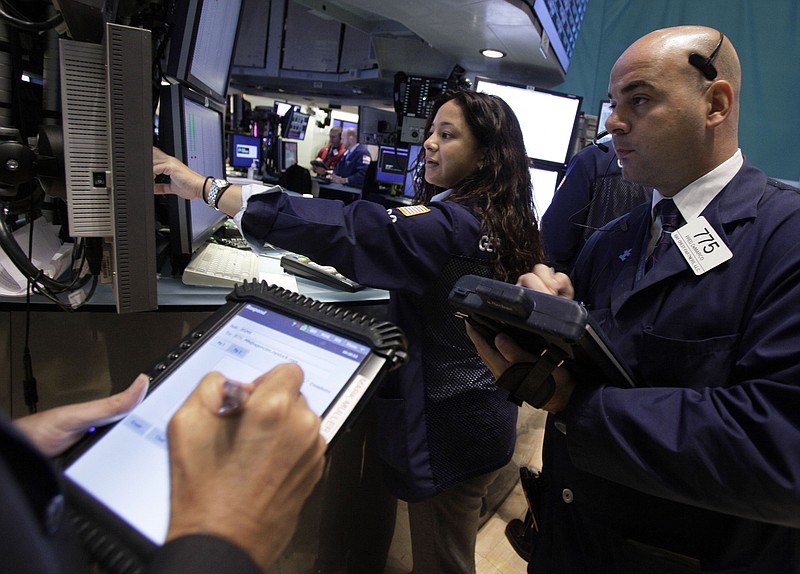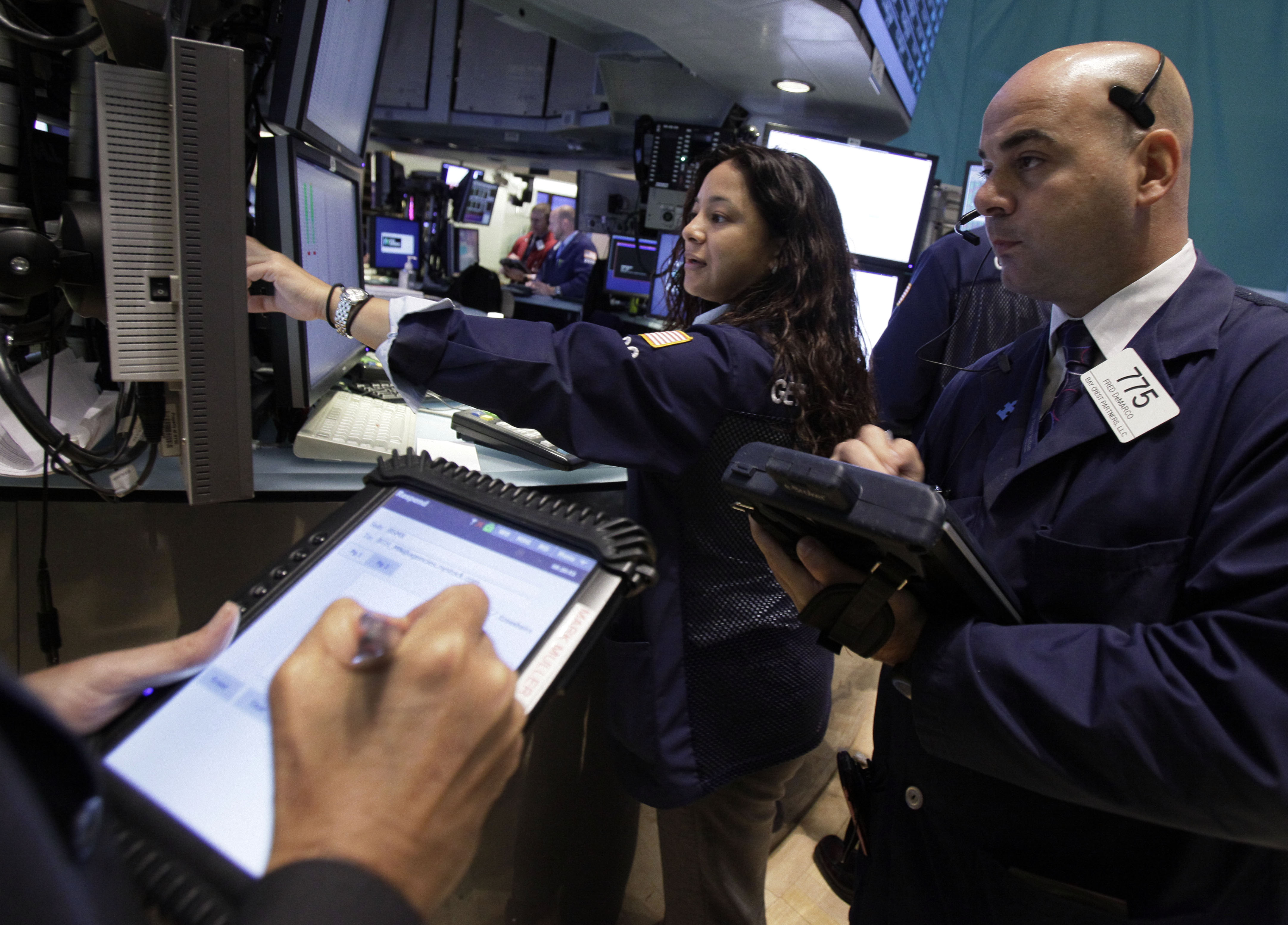Buoyed by a drop in the U.S. jobless rate, the Dow Jones Industrial Average rose Friday to a 5-year high.
The Dow rose 34.79 points, or 0.3 percent, to close at 13,610.15 -- its highest since December 2007. The benchmark index is still short of its all-time high of 14,164.53 reached in October 2007.
Despite the Dow gain, most U.S. stocks ended Friday on a down note, as optimism about an unexpected drop in the American unemployment rate faded and Apple shares slumped.
The Standard & Poor's 500 index fell less than 0.1 percent to 1,460.93, after climbing as much as 0.7 percent earlier in the trading session.
"Today's trading is a pattern we've seen before this week, with a strong start and then we give up gains later in the day," Frederic Dickson, who helps oversee about $32 billion as chief market strategist at D.A. Davidson & Co. in Lake Oswego, Oregon, said in a phone interview. "There's still a lot of the dark cloud of the European financial situation hanging over the market, which sets the tone for the short-term intraday trading."
The unemployment rate unexpectedly fell to 7.8 percent in September, the lowest since President Barack Obama took office in January 2009, as employers took on more part-time workers. The economy added 114,000 workers, in-line with economists' estimates, and August's growth was revised higher by 46,000 jobs to 142,000.
But in Europe, Prime Minister Mariano Rajoy said Spain hasn't taken a decision on whether to seek a bailout and any decision will be based on Spaniards' best interests. Spain needs to consider all the conditions, Rajoy said at a meeting Friday with other leaders in Malta, reiterating the government's position.
The S&P 500 has rallied 16 percent this year as central banks from the United States to China took steps to stimulate economic growth. The benchmark index reached the highest level since 2007 last month as the Fed announced a third round of quantitative easing, saying it will purchase mortgage-backed securities at a pace of $40 billion per month until labor markets "improve substantially."
Apple, the world's largest company by market value, dropped 2.1 percent to $652.59, falling below its average price from the past 50 days. The decline helped erase an advance for technology shares in the S&P 500.

